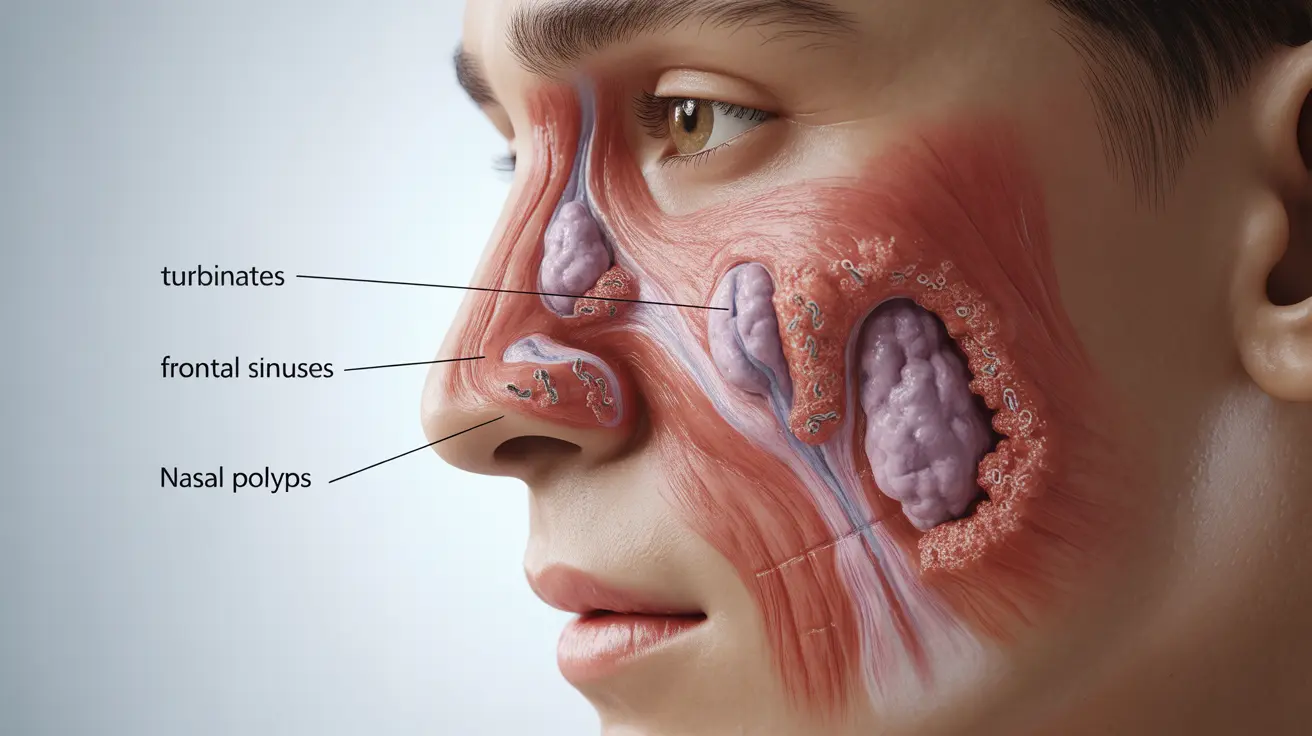Experiencing a bad smell in your nose can be both concerning and uncomfortable. This persistent unpleasant odor, which others might not detect, could signal various underlying health conditions that require attention. Understanding the causes and available treatments is crucial for maintaining your nasal health and overall well-being.
Let's explore the common causes of bad smells in the nose, effective treatment options, and important signs that indicate when you should consult a healthcare provider.
Common Causes of Bad Smells in the Nose
Several medical conditions can lead to experiencing unpleasant odors in your nose. Understanding these causes is the first step toward finding appropriate treatment:
Sinus Infections (Sinusitis)
Sinus infections are one of the most common causes of bad smells in the nose. When bacteria multiply in blocked sinuses, they can create foul-smelling discharge and cause inflammation. This condition often accompanies symptoms like facial pressure, congestion, and thick nasal drainage.
Nasal Polyps
These soft, painless growths on the lining of your nasal passages or sinuses can trap mucus and bacteria, leading to persistent unpleasant odors. Nasal polyps may also cause breathing difficulties and reduce your sense of smell.
Dental Problems
Poor oral hygiene, tooth infections, or gum disease can create bad odors that travel up through the back of the throat to the nasal passages. Regular dental check-ups and good oral care are essential for preventing these issues.
Treatment Options and Management
Medical Treatments
Treatment approaches vary depending on the underlying cause:
- Antibiotics for bacterial sinus infections
- Nasal corticosteroid sprays for polyps
- Surgical removal of large or problematic polyps
- Dental procedures for tooth-related issues
Home Care and Prevention
Several lifestyle modifications and home remedies can help manage and prevent bad smells in your nose:
- Regular nasal irrigation with saline solution
- Maintaining proper nasal hygiene
- Using a humidifier to keep nasal passages moist
- Avoiding known irritants and allergens
When to See a Doctor
Certain symptoms warrant immediate medical attention:
- Persistent bad smell lasting more than two weeks
- Accompanying severe headaches
- Fever and facial pain
- Changes in vision
- Recurring nosebleeds
Frequently Asked Questions
What are the most common medical conditions that cause a bad smell in the nose?
The most common conditions include sinus infections, nasal polyps, dental problems, foreign bodies in the nose, and certain respiratory infections. Each of these conditions can create distinct types of odors and usually comes with additional symptoms.
How can sinus infections lead to a foul odor inside the nose and how are they treated?
Sinus infections cause foul odors due to trapped bacteria and infected mucus in the sinus cavities. Treatment typically involves antibiotics for bacterial infections, decongestants, and nasal irrigation. Some cases may resolve on their own with supportive care.
Can nasal polyps cause a persistent bad smell in the nose and what treatments are available?
Yes, nasal polyps can trap bacteria and mucus, leading to persistent bad smells. Treatment options include corticosteroid nasal sprays, oral steroids, and in some cases, surgical removal. Regular follow-up care is important to prevent recurrence.
When should I see a doctor for a bad smell coming from my nose?
Consult a healthcare provider if the smell persists for more than two weeks, is accompanied by severe headaches, fever, facial pain, vision changes, or recurring nosebleeds. These symptoms may indicate a serious condition requiring medical intervention.
What home remedies or lifestyle changes can help reduce or prevent bad smells in the nose?
Effective home remedies include regular nasal irrigation with saline solution, using a humidifier, maintaining good oral hygiene, staying hydrated, and avoiding known irritants. Lifestyle changes such as quitting smoking and managing allergies can also help prevent bad smells in the nose.




